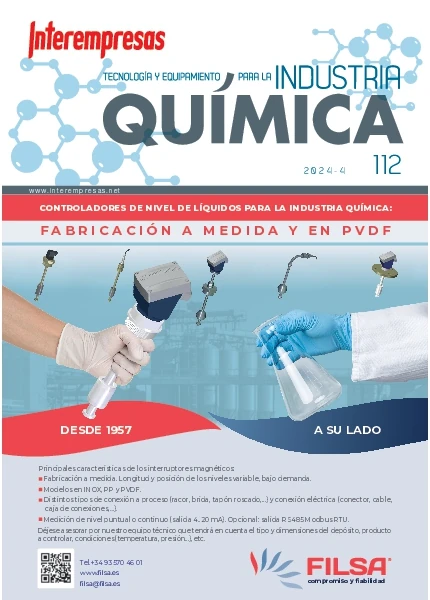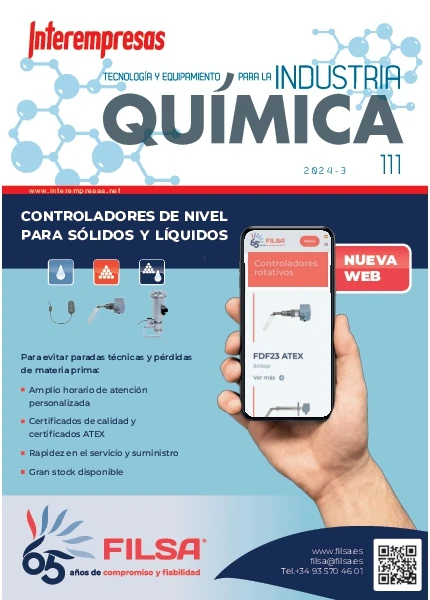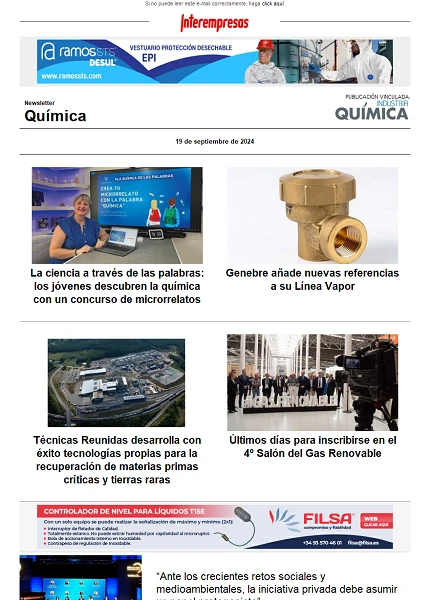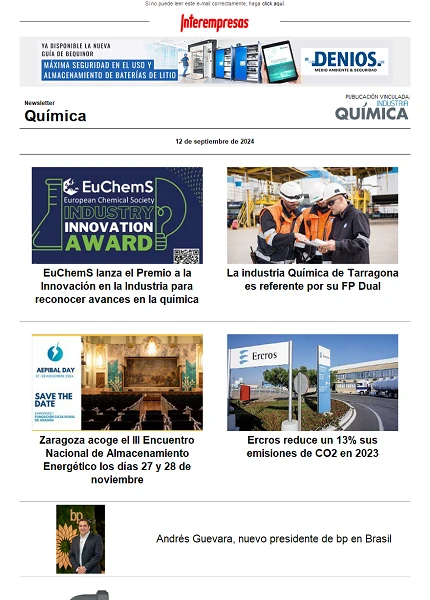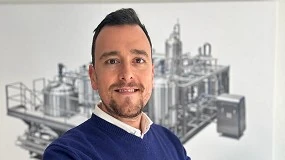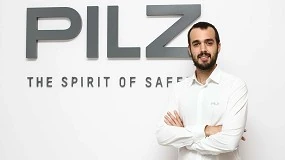In security, we do not run risks
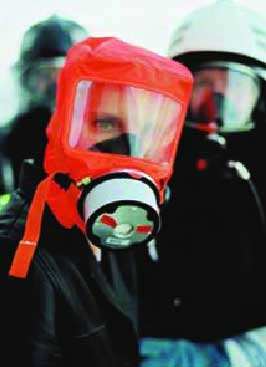
Progress commitment, known internationally as "responsible care", is a global program that applies in 47 countries around the world, and which in Spain is managed and coordinated by the Business Federation of the Spanish chemical industry (Feique).
More than 60 percent of the Spanish chemical sector is already attached to the program, and since its implementation in our country, in 1993, companies that apply have experienced significant progress in the management of security, and in the protection of health and the environment.
These advances are also quantifiable, qualitative. Every two years, Feique publishes the results achieved in the companies implementing the programme, preparing a report of achievements which is disseminated publicly.
Currently, 47 national associations around the world manage and develop in their respective countries Responsible Care, a program that was born in Canada in 1985. Spain adopted him in 1993, and in 2001 became the last country so far, Israel.
Six codes for six areas
• Protection of the environment. This code is designed to achieve the permanent reduction in the volume of pollutants emitted and waste generated at the premises of the companies. To achieve this goal has split it into a set of management practices that follow a sequential logical model to complete a project of reduction. In the sequence of reduction of waste and emissions is given preference, first, the reduction at source, recycling and/or re-use, and finally treatment second for energy recovery or disposal.
The code for the protection of the environment is a management system similar to the Emas and Iso 14001, systems which can be instruments to support the development of commitment to progress.
• Safety and health at work. The objective of the code is to protect and safeguard the health and safety of the people in the company's facilities, whether or not workers. To achieve this, the code presents management practices aimed at improving the conditions of health and safety in the company, which provided a series of multidisciplinary measures to assess, identify and manage risks, avoid conditions and unsafe handlingmaintain and improve the health of employees, and provide more training and information in the described areas.
• Security in processes and response to emergencies. The code of safety in processes enables companies adhering to the program establish appropriate systems of prevention and control of risks arising from the manufacture, storage and handling.
It is designed to avoid any kind of incident in these phases (fires, spills or accidental emissions), making this safe operations, and thus protecting employees, population and the environment.
This code also promotes that each installation has a contingency plan to respond quickly and efficiently to any incident.
• Distribution. The purpose of this code is to reduce the risks involved in the distribution of chemical products to the public in general, the carrier, Distributor, contractor, employees and the environment.
Also, practices promote the preparedness and awareness of employees to prevent emergencies and to increase the safety of operators and other suppliers.
• Protection of product. This code allows to integrate each of the phases of the life cycle of chemical products (from the design and manufacture,) until the recycling or disposal to ensure that they are safe, and respectful with the environment. These principles are transferred, through information sessions, suppliers, contractors and customers.
Within the practices of management of this code, acquire special relevance the dissemination of all information on products, elaborating each of these safety data sheets.
• Communication. The objective of this code is to improve communication and dialogue with society in general and its public companies in particular (employees, neighbors, media, authorities...) and to ensure that facilities are available in a programme to openly communicate all information that responds to the demands and concerns of the public on the safety, health and the environment.
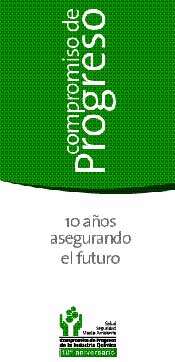
Results achieved
In the period 1993-2002 and per produced unit, companies adhering to the program managed, on average, reducing pollutant discharges to waters a 78 percent and emissions by 50 percent.
Security, the accident frequency rate (number of accidents with lower every million hours worked) has been reduced by 41 percent in the same period, being this index, on average, six times less than for the whole of the industrial activities.

